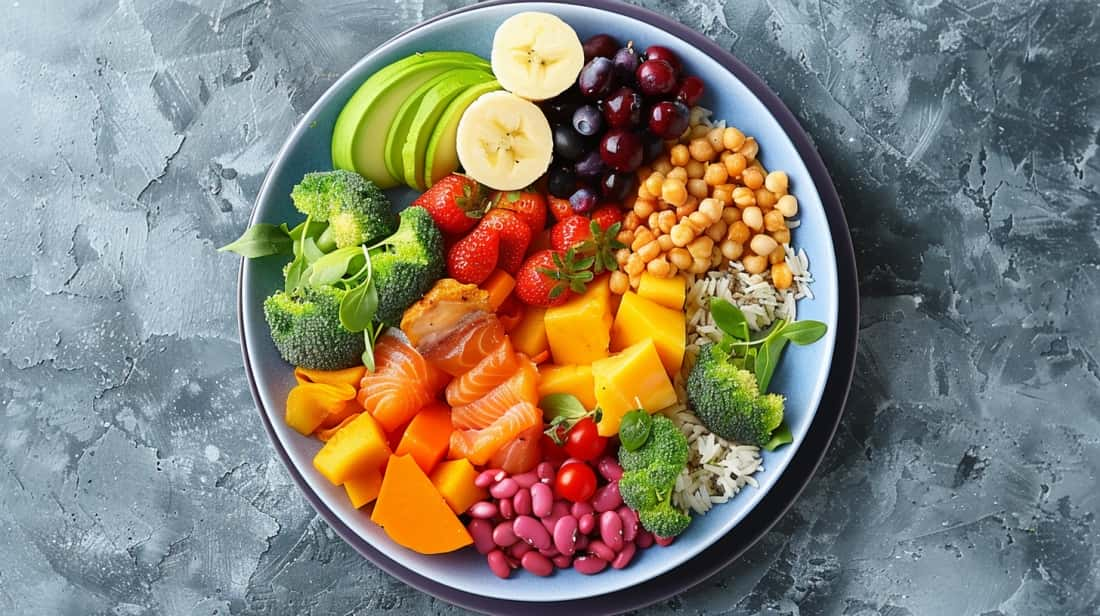As we navigate the domain of breastfeeding and colic, it's crucial to contemplate the impact of our dietary choices on our little ones. The 'Ultimate Breastfeeding Anti Colic Diet Guide' is a beacon of insight for mothers seeking to soothe their infants' discomfort. By uncovering the hidden culprits lurking in our meals, we can take proactive steps towards a calmer, happier baby.
But how exactly do these dietary adjustments work, and what are the key components that make this guide a valuable resource for colicky babies and their mothers?
Key Takeaways
- Avoid cow's milk proteins and caffeine to prevent colic triggers.
- Incorporate probiotics like Lactobacillus reuteri for reduced crying time.
- Focus on essential nutrients like calcium, iron, and omega-3 fatty acids.
- Stay hydrated with water and herbal teas to manage colic symptoms effectively.

Ingenuity Keep Cozy 3-in-1 Grow with Me Vibrating Baby Bouncer, Seat & Infant to Toddler Rocker, Vibrations & -Toy Bar, 0-30 Months Up to 40 lbs (Weaver)
The best-selling Ingenuity Keep Cozy Baby Bouncer, Rocker & Toddler Seat has 3 modes for parent convenience and...
As an affiliate, we earn on qualifying purchases.
Foods to Avoid for Colic Relief
To provide relief for colicky babies, it's essential to be mindful of the foods to avoid in your diet that may exacerbate their symptoms. When breastfeeding, it's important to steer clear of cow's milk proteins as they can trigger allergic reactions in infants with colic. Opting for alternative sources of calcium can help prevent any adverse effects on your baby. Additionally, it's best to limit your intake of caffeine from coffee, tea, and chocolate, as high levels can worsen colic symptoms in your little one.
Cruciferous vegetables like broccoli and cabbage should also be consumed in moderation since they can produce gas, potentially causing discomfort for colicky babies. Moreover, spicy or heavily seasoned foods should be avoided as they may lead to increased sensitivity in infants experiencing colic. Nuts and peanuts should be handled with caution due to their potential to induce allergies that could exacerbate colic symptoms. By being mindful of these food choices while breastfeeding, you can create a more soothing environment for your baby and alleviate their colic discomfort.

Portable Baby Bouncer Seat for Infants, 0-18 Months, 3 Modes of Use with Rocker & Stationary Options, Ergonomic Infant Chair with Hanging Toys – Grey
【ASTM Certification】Our elastic seat is equipped with a three-point harness to keep your infant securely in place, and...
As an affiliate, we earn on qualifying purchases.
Probiotics for Colic Prevention

When considering colic prevention for breastfed babies, incorporating probiotics, such as Lactobacillus reuteri DSM17938, has shown promise in reducing crying time and supporting digestive health.
Studies have indicated that a daily dose of 100 million CFU/day of probiotics for 3-4 weeks can be effective in alleviating colic symptoms in breastfed infants. Probiotics offer a safe and natural approach to aid in digestive health and potentially ease colic discomfort in babies.
It's essential for breastfeeding mothers to consult with a healthcare provider before introducing probiotics to their colicky infants to receive personalized guidance and dosage recommendations.
The effectiveness of probiotics in managing colic may vary depending on the geographic location and individual baby's needs. By incorporating probiotics into their diet, breastfeeding mothers can potentially help reduce their baby's crying time and promote overall digestive well-being.

Ingenuity Ingenuity 3Dquickclose CS+ Compact Fold Stroller – Lightweight Stroller with Oversized Canopy, Extra-Large Storage and Compact Fold, Gray
The Ingenuity 3Dquickclose CS+ Compact Fold Stroller is lightweight and easy to maneuver, making it the perfect stroller...
As an affiliate, we earn on qualifying purchases.
Essential Nutrients for Breastfeeding Moms
Considering the nutritional needs of breastfeeding moms is key to supporting both their own health and the development of their baby. To guarantee peak health for both mom and baby, it's important to focus on essential nutrients like calcium, iron, zinc, and vitamin D.
Including omega-3 fatty acids in the diet, found in foods like salmon and chia seeds, can promote brain and eye development in breastfed infants. Iron-rich foods such as lean meats, beans, and fortified cereals are critical for preventing iron deficiency anemia in both mothers and babies. Boosting vitamin C intake through foods like citrus fruits and bell peppers can enhance iron absorption from plant-based sources in the diet.
Additionally, adequate hydration is essential for breastfeeding moms to maintain milk production and support overall well-being. Prioritizing these essential nutrients and staying hydrated can help breastfeeding moms thrive while nourishing their little ones.

Graco Ready2Jet Compact Stroller – Overhead Friendly Compact Travel Stroller with Automatic Fold, Kingston
Automatically folds to a compact size with one-hand activation for multi-tasking families
As an affiliate, we earn on qualifying purchases.
Hydration Tips for Colic Management

How can we ensure proper hydration to effectively manage colic symptoms in babies? Staying hydrated is essential for breastfeeding moms to prevent dehydration and maintain a good milk supply. Aim for at least 8-10 glasses of water per day to support ideal hydration levels, which can also help in managing colic symptoms in babies. Dehydration can exacerbate colic, so ensuring adequate fluid intake is important for both the mother and the baby's well-being. Hydrating with water, herbal teas, and clear broths can be beneficial. Monitoring urine color is a simple way to check your hydration status, with pale yellow urine indicating proper hydration.
| Hydration Tips | Benefits | Recommended Intake |
|---|---|---|
| Drink water | Prevents dehydration and maintains milk supply | 8-10 glasses per day |
| Herbal teas | Hydrating alternative to water | Throughout the day |
| Clear broths | Provides hydration and nutrients | As desired |
Herbal Remedies for Colic Relief
Exploring herbal remedies such as chamomile, fennel, and peppermint teas can offer soothing relief for colic symptoms in infants. Chamomile tea is gentle and known for its ability to soothe digestive issues, helping to reduce gas and providing relief from colic discomfort in breastfeeding babies.
Fennel tea, with its carminative properties, aids in digestion and can alleviate bloating and gas, offering comfort to colicky infants. Additionally, peppermint tea is believed to relax the muscles in the gastrointestinal tract, potentially easing colic-related discomfort in breastfeeding babies.
It is important to approach herbal remedies with caution and seek guidance from a healthcare provider when using them to address colic symptoms in infants. While these teas can be beneficial, ensuring their safety and effectiveness is vital for your little one's well-being.
Embracing these herbal remedies as part of a holistic approach to colic relief may provide you with additional tools to help ease your baby's discomfort.
Frequently Asked Questions
What Should Breastfeeding Mothers Eat to Avoid Colic?
We should watch our diet while breastfeeding to prevent colic in our babies. Avoiding allergens like dairy, nuts, and caffeine can make a difference. Also, skip strong flavors and spices. Keeping a food diary helps pinpoint triggers and adjust our diet for a happier baby.
What Should I Eat to Help My Baby With Colic?
To help our baby with colic, we avoid trigger foods like beans, dairy, and caffeine. Working closely with a healthcare provider, we follow a hypoallergenic diet while breastfeeding. Prioritizing our baby's comfort is our top priority.
How Can I Reduce My Breastfed Baby's Colic?
We focus on reducing our breastfed baby's colic by monitoring our diet for potential triggers like dairy and caffeine. Eliminating common allergens and irritants helps. We consult healthcare providers for personalized advice, prioritizing our baby's comfort.
Which Food Is Least Likely to Cause Colic in Breastfed Infants?
When it comes to soothing colic in breastfed babies, lean proteins like chicken and turkey, non-citrus fruits such as bananas and pears, whole grains like brown rice and oats, and gentle veggies like sweet potatoes are our go-to choices.
Conclusion
To sum up, remember that 'you are what you eat.' By being mindful of your diet and making small changes, you can help alleviate colic symptoms in your baby. Trust your instincts, seek professional advice, and remember that you aren't alone in this journey.
Together, we can support each other in providing the best care for our little ones. Stay strong, stay informed, and remember that every baby is unique. You've got this!









